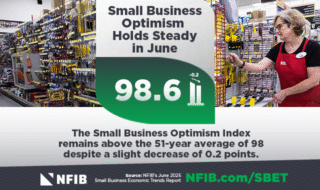An Introduction to SBA’s 7(a) Loan Program
An Introduction to SBA’s 7(a) Loan Program
October 13, 2023 Last Edit: June 5, 2025
An Introduction to SBA’s 7(a) Loan Program
Acquiring funding for your small business has never been more crucial as small business owners work to push through the turbulent post COVID-19 economy. Small business owners who are unable to qualify for a conventional bank loan may want to consider a Small Business Administration (SBA) loan. Of these, SBA’s most accessible loan for small business owners is the 7(a) loan program.
What is a 7(a) loan?
The 7(a) loan program is the SBA’s flagship program and provides loan guaranties to lenders that allow lenders to provide financial help for small businesses with special requirements. Among other things, a business can use a 7(a) loan to:
- Acquiring, refinancing, or improving real estate and buildings;
- Short and long-term working capital;
- Refinancing current business debt;
- Purchasing and installation of machinery and equipment;
- Purchasing furniture, fixtures, and supplies; and
- Changes of ownership.
Terms and Interest Rates
For the majority of 7(a) loans, the SBA will guarantee up to 85% of loans of $150,000 or less, and up to 75% of loans above $150,000. The term for a 7(a) loan will depend on the borrower’s ability to pay. Typically, it will be 10 years or less unless the loan finances or refinances real estate or equipment with a “useful life exceeding 10 years.” The maximum term is 25 years including extensions, which is typically reserved for when the funds are used to improve real property and construction.
Interest rates are negotiated between the borrower and lender but are subject to the prime rate or an SBA optional peg rate. The maximum interest rates for variable 7(a) loans are below:
table { border-collapse: collapse; border-spacing: 0; width: 100%; border: 1px solid #ddd; }th, td { text-align: left; padding: 8px; }
tr:nth-child(even){background-color: #f2f2f2}
| Loan Amount | Max Rate |
|---|---|
| $50,000 or less | Base rate + 6.5% |
| $50,001-$250,000 | Base Rate + 6.0 |
| $250,001-$350,000 | Base Rate + 4.5% |
| Greater than $350,000 | Base Rate + 3.0% |
Eligibility
Eligibility for a 7(a) loan requires that you are:
- An operating business;
- Operate for profit;
- Are located in the U.S.;
- Under the SBA size requirements (this is industry specific and falls under a variety of factors ranging from staff size to gross receipts);
- Not an ineligible business;
- Unable to obtain a loan on reasonable terms on desired credit from a non-government source; and
- Creditworthy, and demonstrate a reasonable ability to repay the loan.
More details on eligibility can be found here.
How to Apply
Borrowers can begin applying by using the SBA’s Lender Match tool to connect with a participating SBA lender. When you apply for the loan, you will work directly through your lender and not with SBA. On the lender match website, you will express your needs and answer questions about your business. You will then receive an email with contact information of a lender who expressed interest in your loan. From there you can compare rates and talk terms and fees before formally applying.
Payment Structure
Loan repayments occur monthly with payment of interest and principal from business revenue. Payments will remain the same for fixed-rate loans whereas borrowers with variable rates may have different payment amounts required by the lender when the interest rate changes.
Existing borrowers can create an account through the MySBA Loan Portal to monitor the status and make payments. Payment through the MySba Loan Portal can only be used for a 7(a) loan.
Additional Information
- For additional information on 7(a) loans including the application process, you can reach out to your local SBA district office.
- For general information concerning the 7(a) loan program, email the NFIB Legal Center at info@NFIB.org.
- To learn more about banking and loans, check out NFIB’s free 2023 webinar recording Banking Basics for Small Business Finding a Bank and Getting the Credit, Loans, and Accounts You Need.
NFIB is a member-driven organization advocating on behalf of small and independent businesses nationwide.
Related Articles














